How To Lock Your Bike (The Right Way)
At Pedalsure, we are committed to preventing bike thefts – especially the latter if you have a policy – and that’s why bike locks are such a fundamental part of our cycle insurance packages
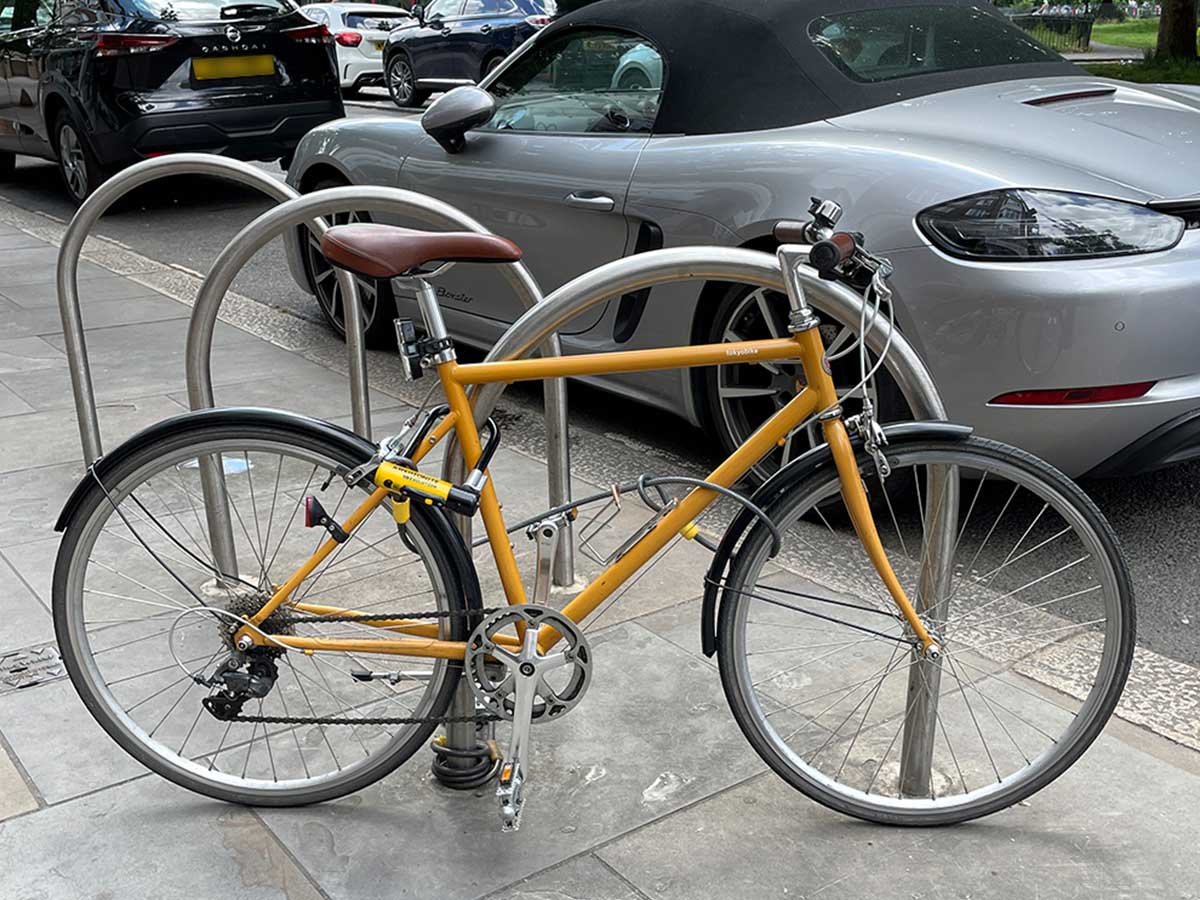
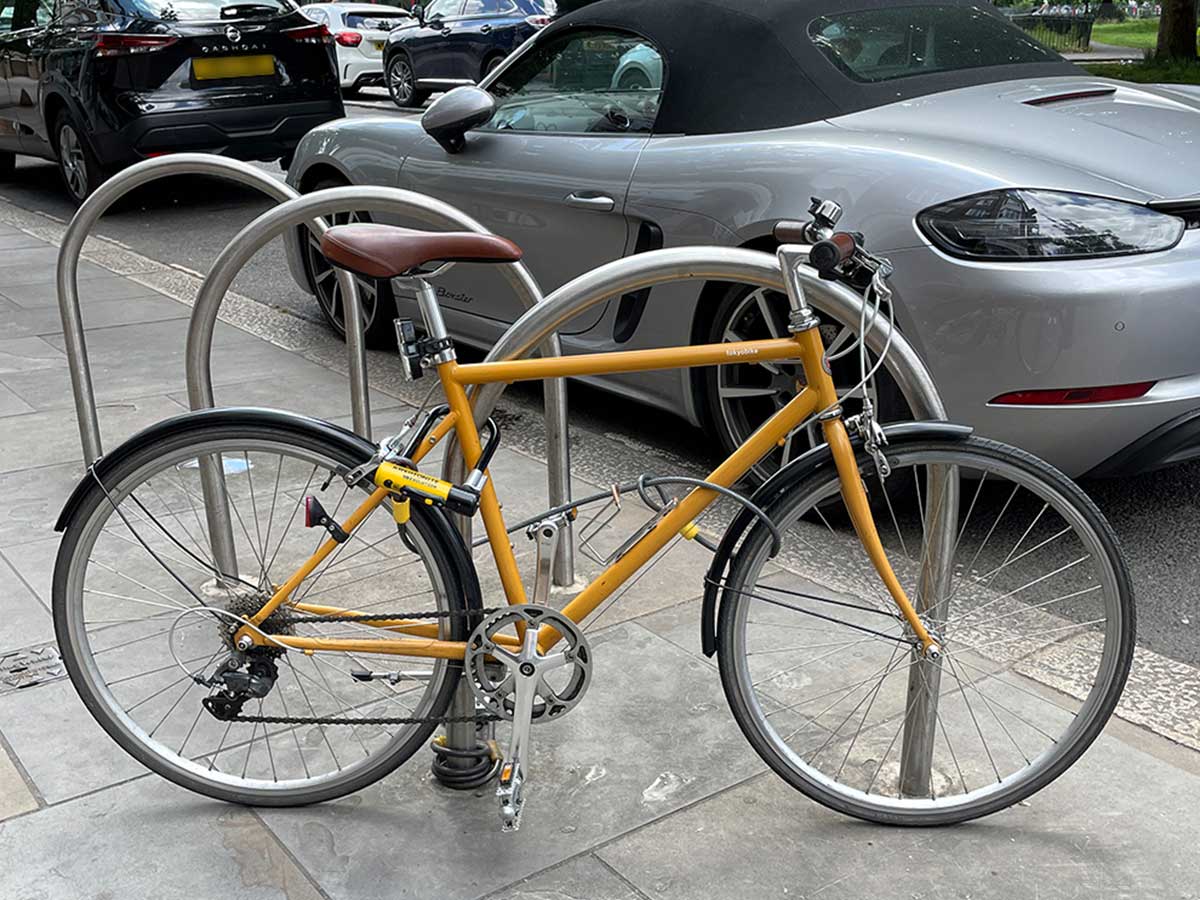
Having your bicycle stolen is a horrible experience. Let’s look at the different types of lock, what locks you may need, how to use them and some quick and easy tips.
Time to get covered if the worst should happen? Get a free quote for cycling insurance from us today.
Table of contents
- Types Of Locks
- What Locks Do I Need?
- Tips For Locking Your Bike
- Locking Your Bike On The Street
- Locking Your Bike At Work
- Locking Your Bike At Home
- Locks And Cycle Insurance
- Related Articles You May Also Be Interested In
Types Of Locks
With the markets awash with different companies and designs, here are the three main types of bike lock. In most cases a combination of two or three of the following will give you the best chance to prevent your bike from being stolen.
D-locks
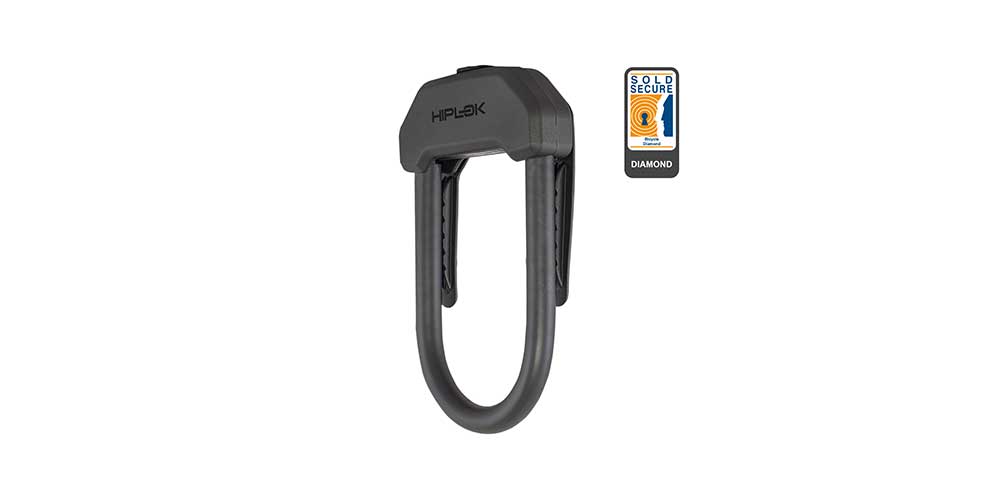
D-locks are arguably the most secure, and with a cable combination they are ideal for commuters. They are tough but can be tricky to get through some frames especially mountain bike designs. However, a particularly heavy-duty D-lock, although unwieldy, may deter a would-be thief. They are easy to stow in a bag or using a frame attachment, so they will add weight to your ride but it’s definitely worth it.
Cable locks
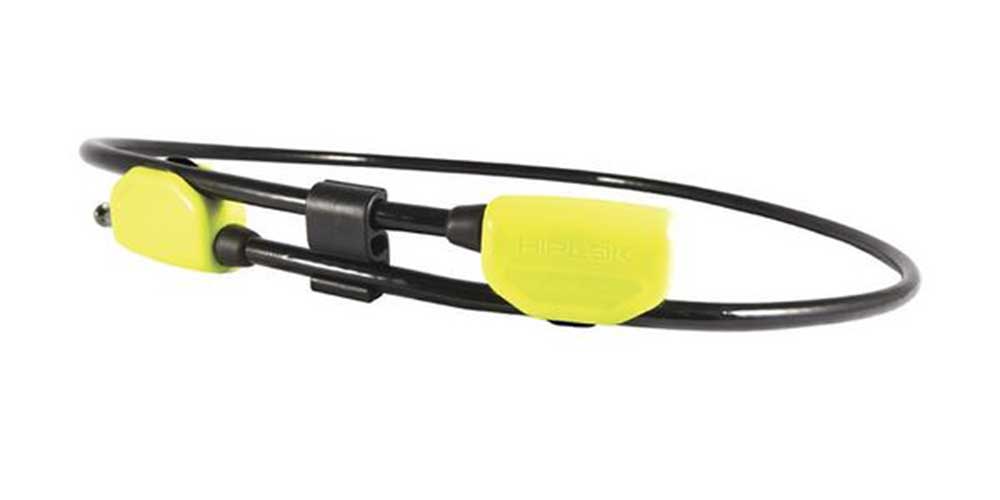
These locks come in the form of a lightweight, combination protected package, or a secondary cable often sold alongside a D-lock. Cables are super convenient when used with another anchoring lock as they can be looped all around the bike. It’s best not to use them in isolation though as they are less secure on their own.
Chain locks
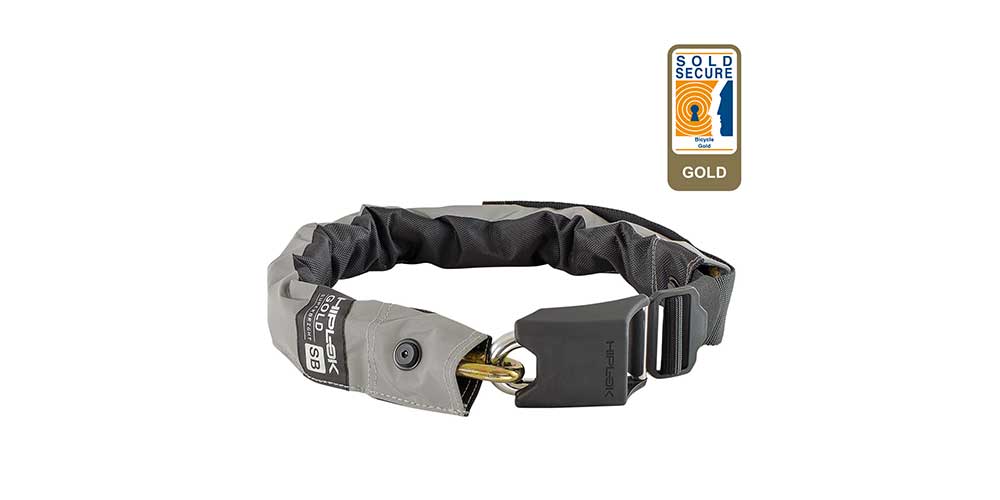
Chain locks are the heaviest of the bunch so probably not the one you want to take on your training ride if you have a scheduled coffee stop. They combine the elements of a cable and D-lock but are far heavier.
What Locks Do I Need?
The more precious the bike, the more secure the lock needs to be. That being said, even lower value bicycles should be protected by a quality lock. No lock is 100% effective against thieves with the right tools and time. But the better the lock, the stronger the detterent.
Sold Secure is an industry recognised 'testing and certification' house for bicycle (and other) locks. They have a four-tier grading system for bicycle locks:
- Diamond rated locking devices offer the highest level of security.
- Gold offers a high level of resistance against a dedicated thief.
- Silver offers a compromise between security and cost.
- Bronze level typically offers defence against the opportunist thief.
Most locks sold by retailers in the UK will display their Sold Secure rating on the packaging or within the product description. As a minimum we would recommend every cyclist uses a Silver-rated Sold Secure lock, and ideally something with a higher rating.
If you have specialist cycling insurance, your insurer will likely require the use of locks rated to a certain standard for your cover to be effective. Check your policy but these requirements will apply where you lock your bike outside or in an outbuilding at home, for example.
At Pedalsure, we use the Sold Secure grading system and require use of the following:
- Silver – bicycles up to and including the value of £1,000
- Gold – bicycles with value above £1,000
Did you know? We offer ALL new and renewing customers a massive 60% discount on a Diamond-rated Hiplok DX D-lock worth £79.99 with your policy. Yours for just £30. That’s a saving of £50 and we include the shipping for free.
Tips For Locking Your Bike
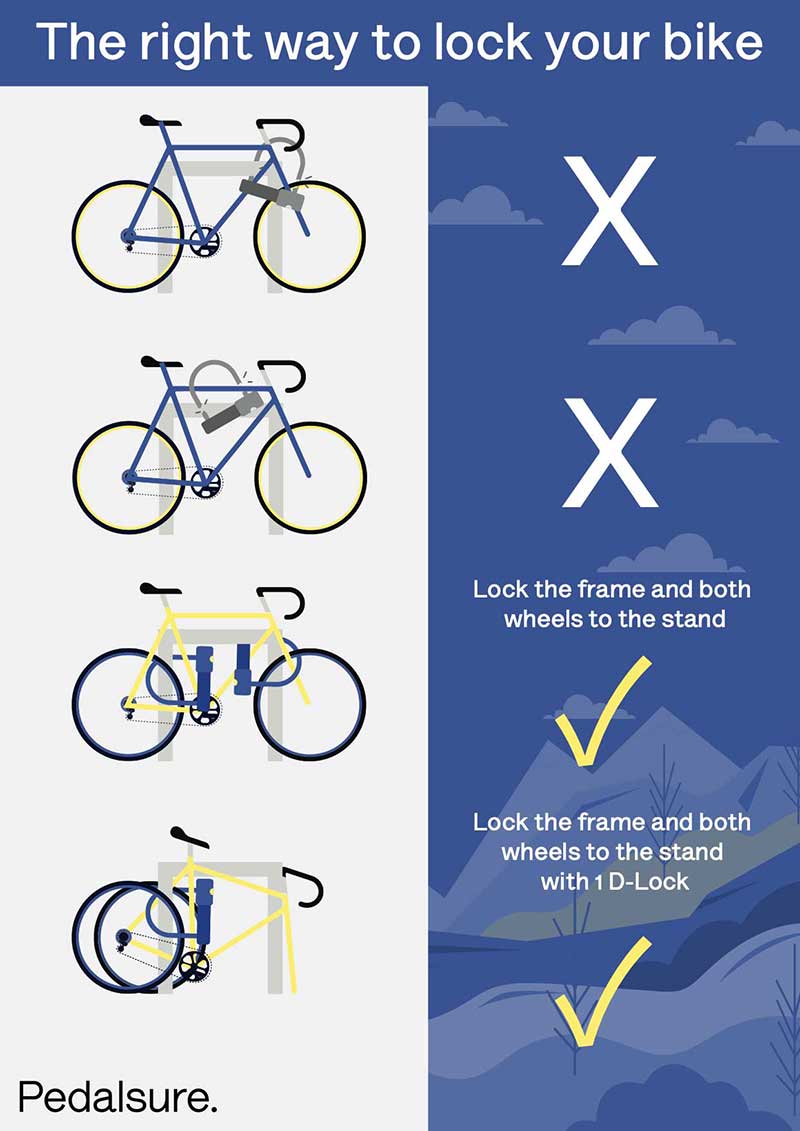
We got in touch with Cambridgeshire Police, one of the areas of the United Kingdom with the highest incidences of cycle use and cycle theft, to ask them what people should do to protect their beloved steed.
"To reduce bike theft, we work with local businesses and partner agencies across the county to raise awareness and prevent cycle crime.
"Each year our officers find hundreds of stolen bikes. If you’re ever unfortunate enough to have your bike stolen, having it registered in your name will help us get it back to you if we, or anyone else, finds it."
They also shared some top tips for locking your bike:
- Lock your bike whenever it is unattended.
- Take any accessories with you, such as lights and pumps, etc.
- Use Sold Secure, the trusted bike lock security website.
- Use two different locks to secure your bike - this makes it a lot harder to steal as thieves may need different tools to unfasten each lock.
- If possible, lock your bike to cycle racks in busy, well-lit areas.
- Look for CCTV when picking a good spot.
- Lock both wheels and the frame to a solid object and try to fill the lock with as much of the bike as possible for ultimate security.
- Remember locks can be picked, so facing the lock to the ground makes it harder for the thief to release your bike.
Locking Your Bike On The Street
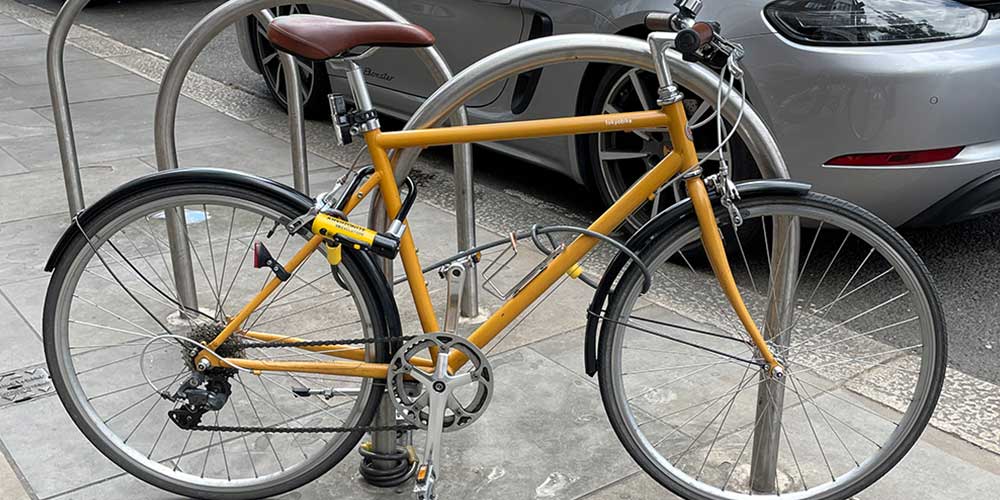
When it comes to locking your bike in the street there are dos, double-dos and don’ts in terms of the chosen method. So, whether you’re pausing during a training session, locking up outside the coffee shop before work or on a grocery run, keep these pointers in mind.
Don't
- Lock your bike to a movable object.
- Lock just the back of the rear wheel, low down to an immovable object.*
- Lock to a chain link fence.
*Thieves may use the ground as leverage for a cutting implement, so if your lock is on the ground it just makes it easier for them.
Do
Use a D-lock through the seat tube and rear wheel and then attach to an immovable object.
- Use a D-lock through the seat stay and rear wheel and then attach to an immovable object.
- Use a D-lock through the top tube and then attach to an immovable object.
Double-do
Use a D-lock through the seat tube and rear wheel and then attach to an immovable object, utilising a cable to wrap through both wheels and then link it back to the central D-lock.
- Remove the quick release front wheel, place it next to the rear wheel and D-lock through both to an immovable object.
- Use two D-locks, one through the seat tube, rear wheel and immovable object, and another through the down tube and front wheel.
Locking Your Bike At Work
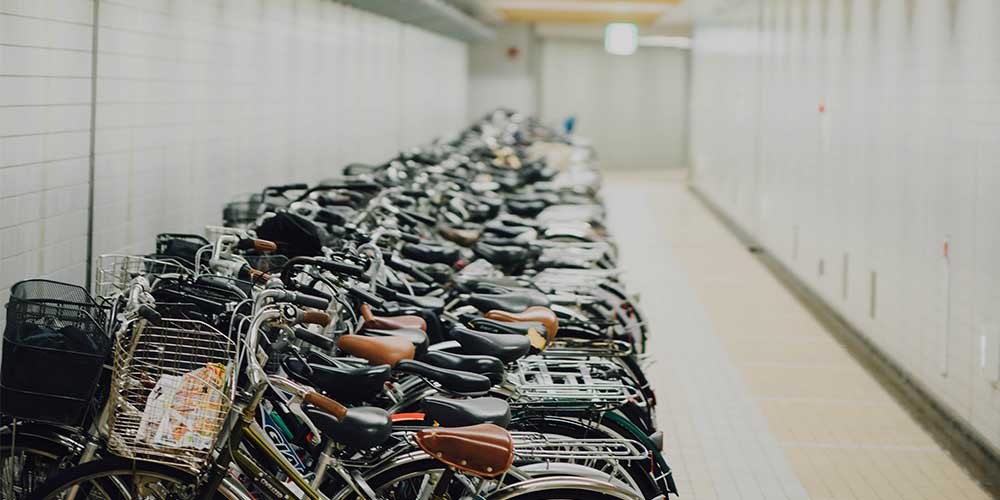
Many workplaces offer private spaces to store your bikes which is great, but it’s important to follow the guidelines as listed above because you never know who may have access to that shared space. If you have cycle insurance, check your policy for any requirements when leaving your bike unattended at work.
Locking Your Bike At Home
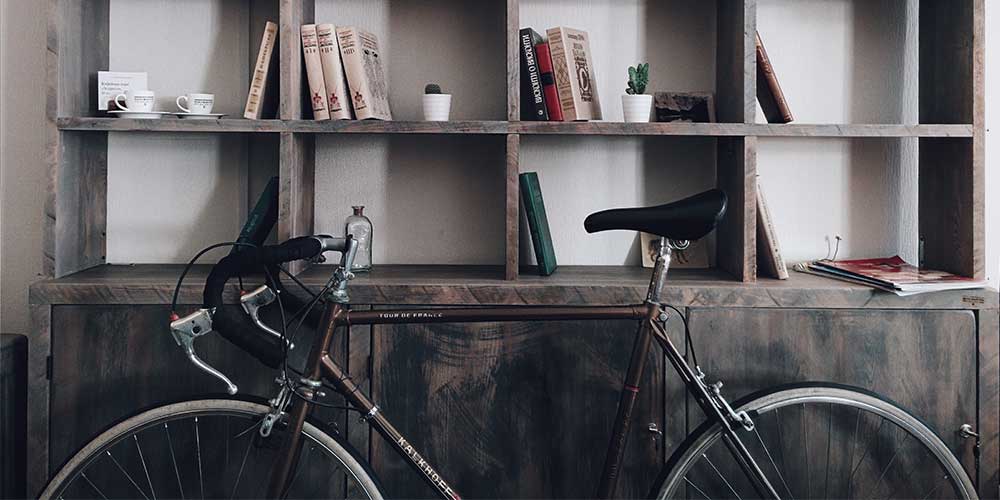
Similarly, it’s best practice to be overly cautious at home too. Instead of putting your bike in an exterior storing unit and wiping your hands of it, find an immovable object of your own and lock the bike to it. If not, lock it to something that will make a racket if it is moved or that is larger than the door itself.
Don’t leave your bike unattended in the garden, or in a shed or garage, for long periods of time, you never know who may be watching.
Locks And Cycle Insurance
As well as stipulations on lock ratings and quality, rules on locking your bike while it's unattended is an integral part of many cycle insurance policies. As ever read your policy to check what's required for your cover to be effective.
Examples might include:
- Not leaving your bike locked and unattended away from your home for longer than a prescribed period of time (e.g. 12/24 hours).
- Not leaving your bike locked in council bike hangars.
- Ensuring your bike is locked to an immovable object if it's left in a garage or shed.
For more details about Pedalsure's locking requirements, consult the ‘Security Requirements’ section of our Policy Document.
Related Articles You May Also Be Interested In
Some other articles about bike theft:
- The Worst Places In The UK For Bike Theft
- 12 Ways To Stop Your Bike Getting Stolen
- Are Stolen Bikes Covered By Insurance?
There you have it, Pedalsure’s foolproof guide to locking your bike. Bike locks are a huge part of our cycle insurance packages and it’s vital that you have the correct lock and all the best practices in mind when preparing to secure your bike.
Sometimes, there really is nothing you can do to protect against particularly aggressive thieves hell-bent on taking your bike – that’s where we come in. If you’re looking for cycle insurance that's been trusted by over 50,000 other riders, you can get a quote from us in no time at all.

